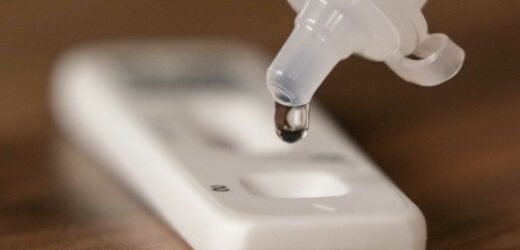ONE of the biggest changes in Britain's pandemic set to come in next week is the scrapping of free Covid tests.
From next Friday Brits in England will have to pay to check if they have the virus, unless they are in certain groups.
The rest of the UK is set to follow at a later date, with Scotland, Wales and Northern Ireland continuing with some free testing for longer.
People will no longer be able to get a free PCR test on the NHS, unless they are considered high risk.
And lateral flow tests, which have been the staple of home testing, will no longer be free unless you are in a certain risk group.
Instead Brits will have to go to high street stores selling one swab for around £1.99.
Read more on Covid
Your persistent cough might be killer Victorian disease and NOT Covid, doc warns
NHS budgets set to be cut by staggering £500m to cover cost of Covid testing
This is part of Boris Johnson’s plan to “live with Covid” and move the nation forward without self isolation and restrictions.
The Government website said: “The Test & Trace programme cost £15.7 billion in 2021/22.
“With Omicron now the dominant variant and less severe, levels of high immunity across the country and a range of strategies in place including vaccines… the value for taxpayers’ money is now less clear.
“Free testing should rightly be focused on at-risk groups.”
Most read in Health
VIRAL THREAT Woman diagnosed with deadly Ebola-like virus in the UK, health chiefs say
I was told my kids wouldn't live past 10 – my world was turned upside down
Popular fizzy drinks could increase the risk of deadly cancers, study finds
Aspiring model, 27, died of cancer after doctor said her hormones were to blame
Who can still get free testing after April 1?
The Government’s lateral flow test portal now says people still need Covid tests if they work in the NHS, are at higher risk of Covid or visit high-risk people.
It directs people to a list of people “at higher risk” on the NHS website.
These includes people with conditions like:
- long-term lung conditions (such as severe asthma, COPD, bronchiectasis and cystic fibrosis)
- long-term conditions affecting the heart or blood vessels (such as congenital heart disease, heart failure and peripheral arterial disease)
- long-term kidney disease
- long-term liver conditions (such as cirrhosis and hepatitis)
- conditions affecting the brain or nerves (such as dementia, Parkinson's disease, motor neurone disease, multiple sclerosis, epilepsy, cerebral palsy or stroke)
- severe or multiple learning disabilities
- Down's syndrome
- diabetes
- problems with the spleen or the spleen has been removed (splenectomy)
- severe obesity (a BMI of 40 or above)
- severe mental conditions (such as schizophrenia and bipolar disorder)
- a condition or treatment that makes you more likely to get infections
- a condition your doctor advises puts you at high risk
People with weakened immune systems include those who had or have:
- a blood cancer (such as leukaemia or lymphoma)
- a weakened immune system due to a treatment (such as steroid medicine, biological therapy, chemotherapy or radiotherapy)
- an organ or bone marrow transplant
- a condition that means you have a very high risk of getting infections
- a condition or treatment your specialist advises makes you eligible for a 3rd dose
Some children and young people aged 5 to 17 are considered at high risk if either:
- they live with someone who has a weakened immune system (such as someone who has HIV, has had a transplant or is having certain treatments for cancer, lupus or rheumatoid arthritis)
- they have a condition that means they're at high risk of getting seriously ill from Covid-19
Conditions that mean they may be at high risk include:
- a severe problem with the brain or nerves, such as cerebral palsy
- Down's syndrome
- severe or multiple learning disabilities (or they're on the learning disability register)
- a condition that means they're more likely to get infections (such as some genetic conditions or types of cancer)
It comes after the Health Secretary urged Brits who catch the virus to act like they have flu.
And he said that people who test positive should still self-isolate for at least four or five days before returning to work.
He said ministers are not worried about rising cases, which was "always going to be the case" as the country ended all restrictions.
But he said anyone with Covid symptoms should try to avoid others until they feel better, and test if they can.
Mr Javid defended the Government's decision to phase out free lateral flow tests from the end of this month.
He said the move was part of plans to start living with the virus and Brits could be trusted to show "common sense" if they feel ill.
The health sec said: "We will focus our tests on of those that are most vulnerable or in vulnerable settings and that's the right way forward.
"Post April 1 if people have Covid symptoms then they should just behave sensibly like you would expect someone to behave if they had flu symptoms.
"That is to socialise a bit less, stay indoors, and wait till you feel better."
He added: "If I tested positive I wouldn't go into work. We're relying much more on people's personal responsibility, their own common sense.
"As we learn to live with Covid as we've learned to live with other viruses like the flu, people should take a common sense approach.
Read More on The Sun
Chelsea takeover cut down to TWO bidders with Blues fan Coe still in running
Drivers face £200 fine from today for just TOUCHING their phone
"If you're not feeling well, if you've got the symptoms of Covid, then it's not a good idea to mix with other people.
"The right idea is to spend some time trying to stay away from others."
When will Covid testing end in the rest of the UK?
Wales
From March 28 the availability of free PCR tests for the public will end and be replaced with lateral flow tests, which will be available until June.
Scotland
People without symptoms continue to be advised to test twice weekly, while close contacts of a positive case should test daily for seven days, and those with symptoms should get a PCR test.
But First Minister Nicola Sturgeon said most testing will stop at the end of April. The general public will be encouraged to stay at home if they feel unwell.
But those who are eligible for anti-viral treatments will continue to be able to access testing – in the community and in hospital settings.
Northern Ireland
Northern Ireland has not yet laid out plans.
We pay for your stories!
Do you have a story for The Sun news desk?
Email us at [email protected] or call 0207 782 4104. You can WhatsApp us on 07423 720 250. We pay for videos too. Click here to upload yours
Click here to get The Sun newspaper delivered for FREE for the next six weeks.
Source: Read Full Article











